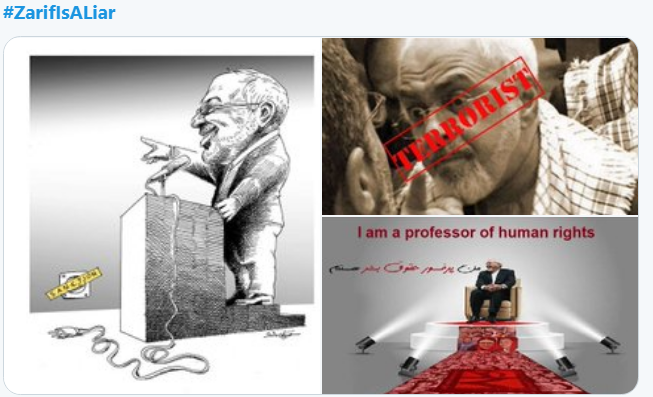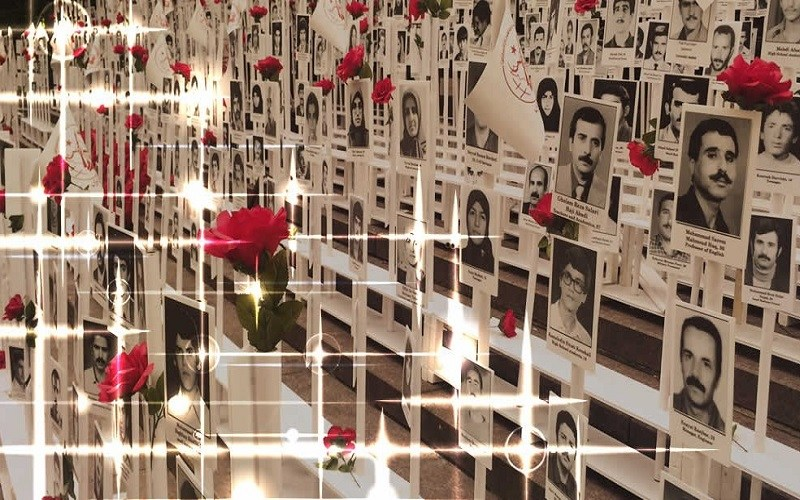The missile attack allegedly carried out on September 14 by the Iranian Revolutionary Guard against Saudi oil facilities has further raised tensions in the region.
Less than 2 weeks after this incident the international community pledged to try to ease tensions in the Middle East and urged Iran to “refrain from choosing provocation and escalation.”
The International response to Iran’s attack was not what the Iranian authorities would have predicted and significantly changes the game. Two weeks ago, it appeared that Iran might find an open window for negotiation, but the attack against the oil facilities has resulted in a marked shift in position by world leaders. Although Iran has denied any involvement and warned it would retaliate against any military action, international opinion and the evidence is stacked against Tehran.

Boris Johnson met with French President Emmanuel Macron and German Chancellor Angela Merkel on Monday on the sidelines of the annual United Nations gathering of world leaders to coordinate their strategy on Iran. “It is clear for us that Iran bears responsibility for this attack. There is no other plausible explanation. The time has come for Iran to accept negotiation on a long-term framework for its nuclear program as well as on issues related to regional security, including its missiles program and other means of delivery,” the three leaders said in a joint statement released by France.
UK Prime Minister Boris Johnson went further and said the UK will consider taking part in a US-led military effort to bolster the Gulf kingdom’s defenses.
The statement released after the UN meeting, which aligns with Washington’s position on both the Saudi attacks and the need to strengthen the nuclear accord, represented a significant shift in Europe’s position of tolerance toward Iran.
At this time last year, Iranian President Hassan Rouhani and Foreign Minister Mohammad Javad Zarif had mostly won over European support as Iran attempted to insert a wedge between the United States and its European allies. By contrast, this year Iranian officials discovered they are isolated in the corner of the UNGA with the Europeans unable to offer any substantive economic relief; even a French-led initiative to issue a credit line of $15 billion looked likely to fail.
“….. they are able to get from Europeans no more than some limited political cover for support of the nuclear deal,” said Ellie Geranmayeh, the deputy head of the Middle East and North Africa studies for the European Council on Foreign Relations.
Shortly before leaving for the UN meetings on Monday, Iran’s President Rouhani said on state television that his country will invite the Persian Gulf nations to join an Iranian-led coalition “to guarantee the region’s security.” Zarif said the new Hormuz Peace Initiative contains two underlying principles: nonaggression and noninterference. In other words, he wants to “Let the fox guard the henhouse or to set a wolf to guard sheep” .
However, the West has frequently erred by relying on the word of Iran’s Mohammed Javad Zarif. A CNN security analyst said last week “Iran’s Zarif is a professional liar.” Reactions poured out on social media against Zarif and Rouhani with the hashtags #zarifliar and #No2Rouhani.

Meanwhile, to emphasize that Iran’s warmongering policy is the other side of the same coin as its domestic policy, human rights experts from various countries took part in a conference held on Friday at the Palais des Nations of the United Nations European Headquarters in Geneva, spotlighting the need to end the three-decade-long impunity Iranian regime officials have enjoyed in relation to continuing human rights violations across the country, and especially the horrendous summer 1988 massacre when over 30,000 political prisoners,

mainly members and supporters of the Iranian opposition group People’s Mojahedin Organization of Iran (PMOI/MEK), were executed in just a few months.
Let us trust that the truths that are now emerging heralds a change of perspective so the Iranian regime is seen clearly throughout the world for the menace it is and treated accordingly.

